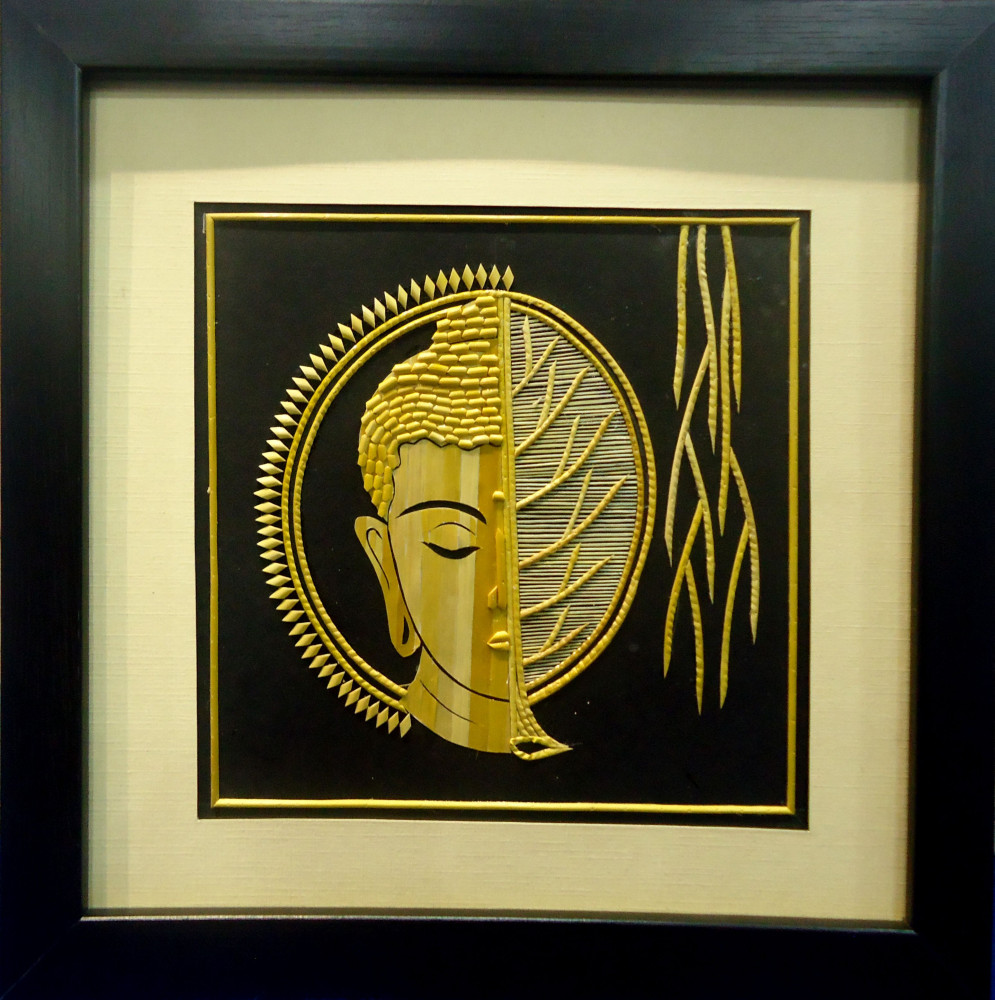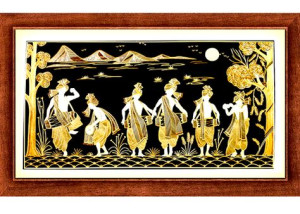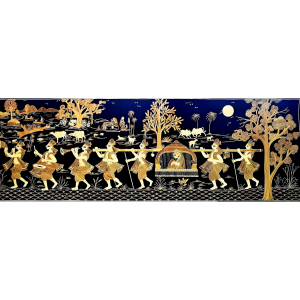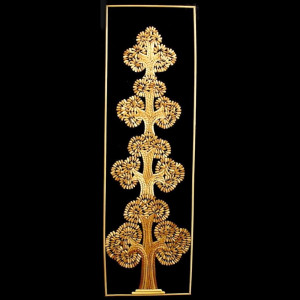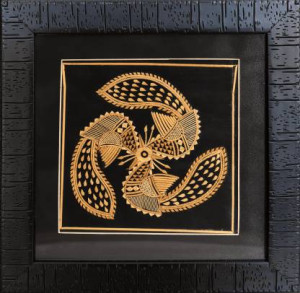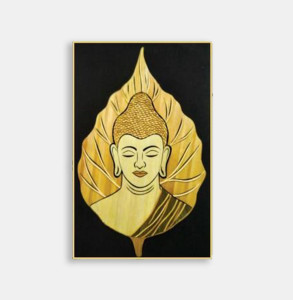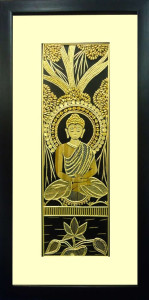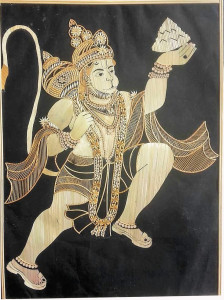Sikki Grass Wall Art Gautam Buddha
Infuse your space with serenity and tranquility with our Sikki Grass Wall Art Gautam Buddha. Handcrafted with natural sikki grass, this wall art piece depicts the serene visage of Gautam Buddha, bringing a sense of peace and enlightenment to your home.
- GI Origin: Bihar
- Material: Sikki Grass
- Size: 12 x 12 inches
- Weight: ~ 1 kg
- Product GI Certificate No: 46
- Care Instructions: Dusting - gently with a soft brush/cloth.
- Need Assistance? Feel free to reach us at support@giheritage.com or contact +91-7483932390 for assistance.
- Note: Although an artisan meticulously crafts their work with great attention to detail, there may still be some minor difference present, showcasing the inherent imperfections that add a touch of uniqueness to each piece. Kindly ignore such minor differences and slight variations in color, weight and size as it adds to the uniqueness of product. Each piece is a one-of-a-kind treasure, making your purchase truly special.
Description of goods:
The array of items fashioned from Sikki grass serves both practical and decorative purposes. These encompass receptacles for storing grains, rice, and lentils, as well as boxes for safeguarding attire and jewelry. There are also baskets for storing sweets and betel leaves, and containers for preserving spices. Additionally, mobiles and toys cater to children's interests, while women craft bangles for personal adornment. Urban markets feature coasters, handheld fans, bowls, boxes, mobiles, and three-dimensional figurines. Conversely, religious festivals witness the creation of deity figures. Crafted items often portray the artisans' daily routines, their surroundings, and elements of mythology and religion. The product range spans from replicas of Hindu gods, goddesses, and temples to modern functional articles like trays, baskets, pen stands, necklaces, and bangles.
The diverse Sikki products fall into two categories:
- Religious & Mythological: This includes human figures, deity replicas, chariot and temple models, reliefs, and sculptures.
- Ornamental & Functional: Encompassing baskets, boxes, toy animals and birds, trays, jewellery, beads, pendants, necklaces, bangles, and bowls of various sizes and shapes.
Geographical area of production and maps:
Production predominantly occurs in the Sitamarhi, Madhubani, and Darbhanga Districts of Bihar.
Proof of origin / Brief History (Historical Records):
Historically, a significant portion of North Bihar's populace engaged in Sikki grass craft, primarily concentrated in Darbhanga, Madhubani, and Sitamarhi districts. Initially a skill possessed by women, it gradually evolved into an income-generating activity, thanks to interventions from local NGOs like Adithi. Despite dwindling involvement due to stagnation in design innovation and market limitations, there remains a demand for Sikki products, valued not only for their aesthetic appeal but also for cultural significance. However, dwindling sales and artisan engagement have put the craft at risk of extinction. Currently, there are an estimated 1500 skilled artisans, but many are no longer actively involved, contributing to a decline in annual turnover.
Method of Production:
Sikki grass, abundant in the wetlands of North Bihar, is harvested by women from village farms. The upper flowering portion is discarded, leaving behind stems that are sliced and shaved for crafting. These products are sold at weekly markets or by itinerant sellers, with pricing based on fistful measurements rather than weight. Munj grass, used for crafting baskets, is readily available and durable. Sikki grass, dyed in various colors, is fashioned into articles ranging from baskets to deity figurines. Women artisans, following traditional techniques, craft products year-round, adapting to seasonal needs.
The Technique of making Sikki products:
Crafting typically involves shaping forms with coiled khar grass, encased in softer Sikki grass, often incorporating motifs from local traditions. Technical enhancements include dyeing grass with fast colors. The coiling technique, using a thick needle called Takua, is prevalent, especially in constructing sculptural forms. Products are built up using coils, with women employing a 6-inch-long needle-shaped iron tool called Takua, made of lac. No threads or cords are utilized, maintaining the authenticity of the craft.
Uniqueness:
Sikki products stand out for their coiling technique, wherein long grass is wired and stitched together with Pasikki, creating a sturdy framework. The absence of threads or cords emphasizes the craft's simplicity and authenticity. Moreover, Sikki grass products from Bihar were granted a GI Certificate on 23/11/2007.

 INR
INR USD - $
USD - $
 CAD - Can$
CAD - Can$
 EUR - €
EUR - €
 GBP - £
GBP - £
 SGD - S$
SGD - S$
 AUD - A$
AUD - A$
 MYR - (RM)
MYR - (RM)
